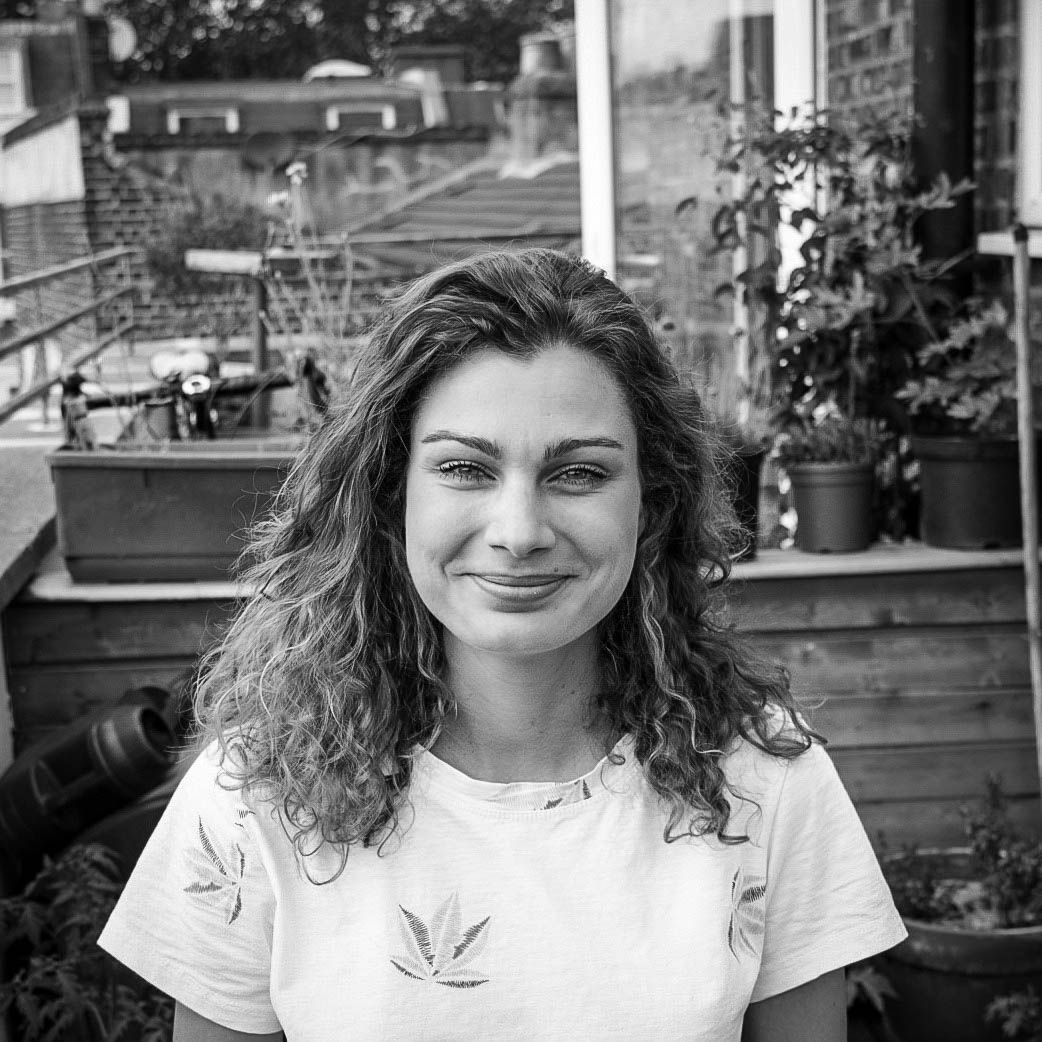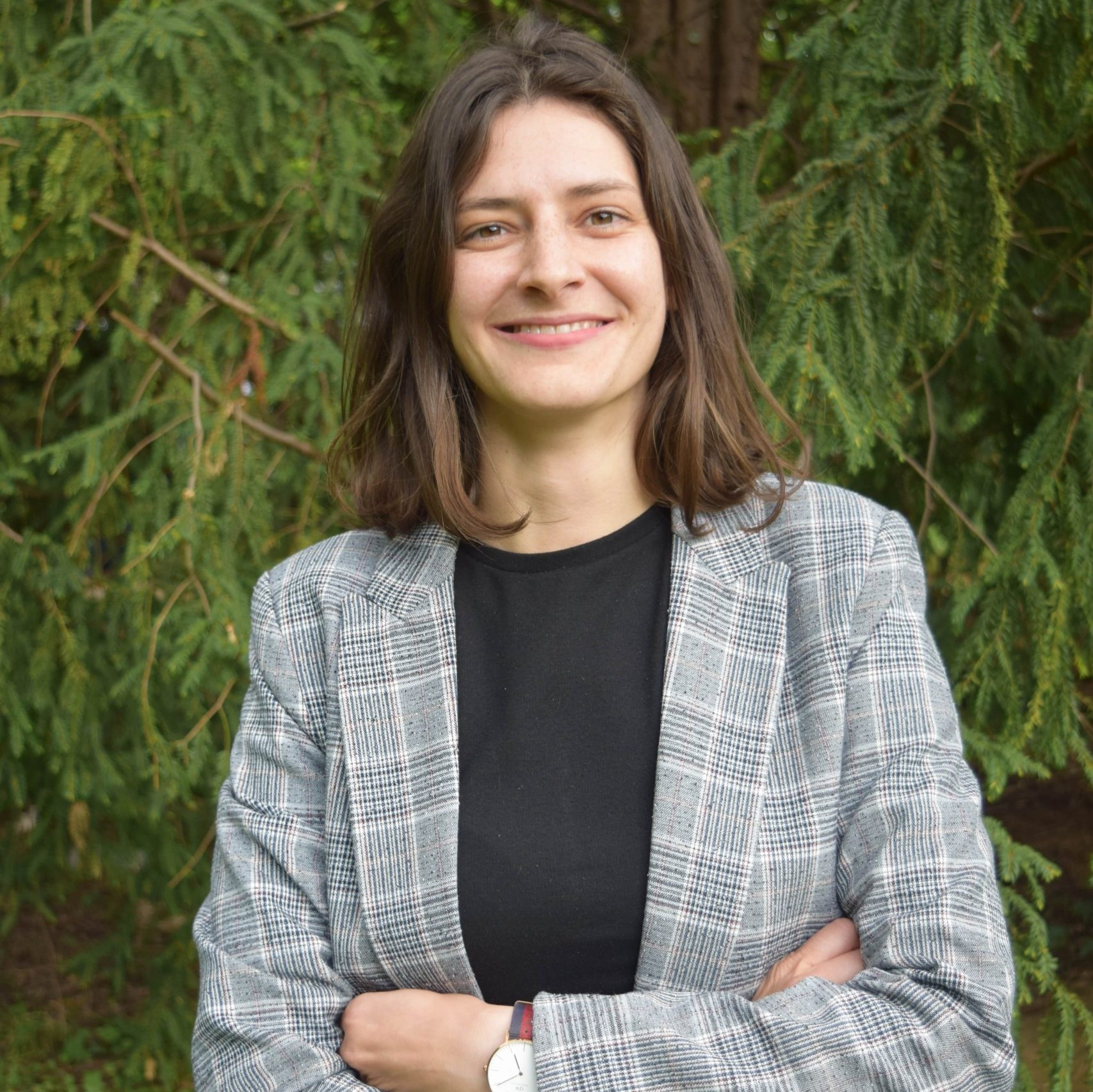When it comes to transforming cities, most think of implementing green spaces, retrofitting buildings, pedestrianising streets. It makes sense, when the bigger, tangible improvements are easily perceived by the eye. But what about microcontrollers? Artificial inteligence? These have a great impact on how we improve our urban environment, too. Here is where this Young Leader comes into play – shaping cities with the Internet of Things (IoT).
As a holder of a BSc in Food Science, MSc in Smart Cities & Urban Analytics, and currently as a PhD Student of Connected Environments at The Bartlett Center for Advanced Spatial Analysis, there’s no denying Aude Vuilliomenet has an expansive knowledge of urbanism. However, it’s the technological aspect of it that makes her heart skip a beat.
It Started with London
Having grown up in Switzerland, Aude never expected that London would be her place to pursue research in the built environment.
The bustling capital of the UK is the exact opposite of the small Swiss cities, which are often surrounded by nature. While living in Zurich, it seemed only natural to Aude to be aware of where the food sold at the farmers’ market came from, as she was able to see the very farms and fields just a little outside the city.
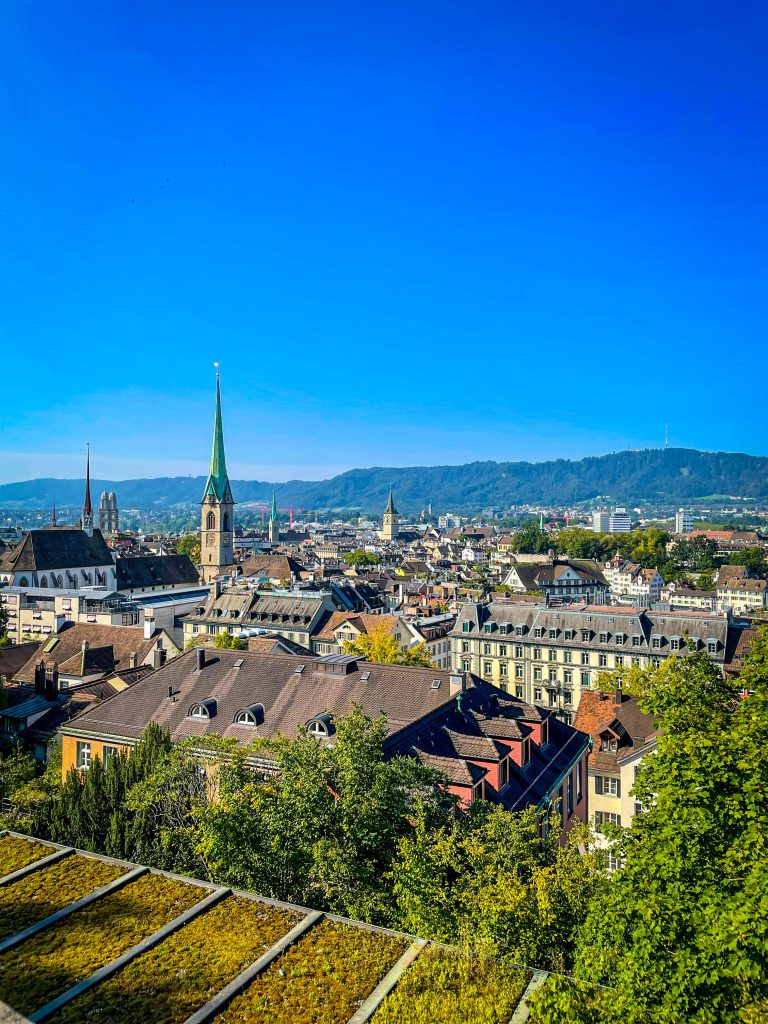
Zurich, Switzerland. Image credit: Aude Vuilliomenet 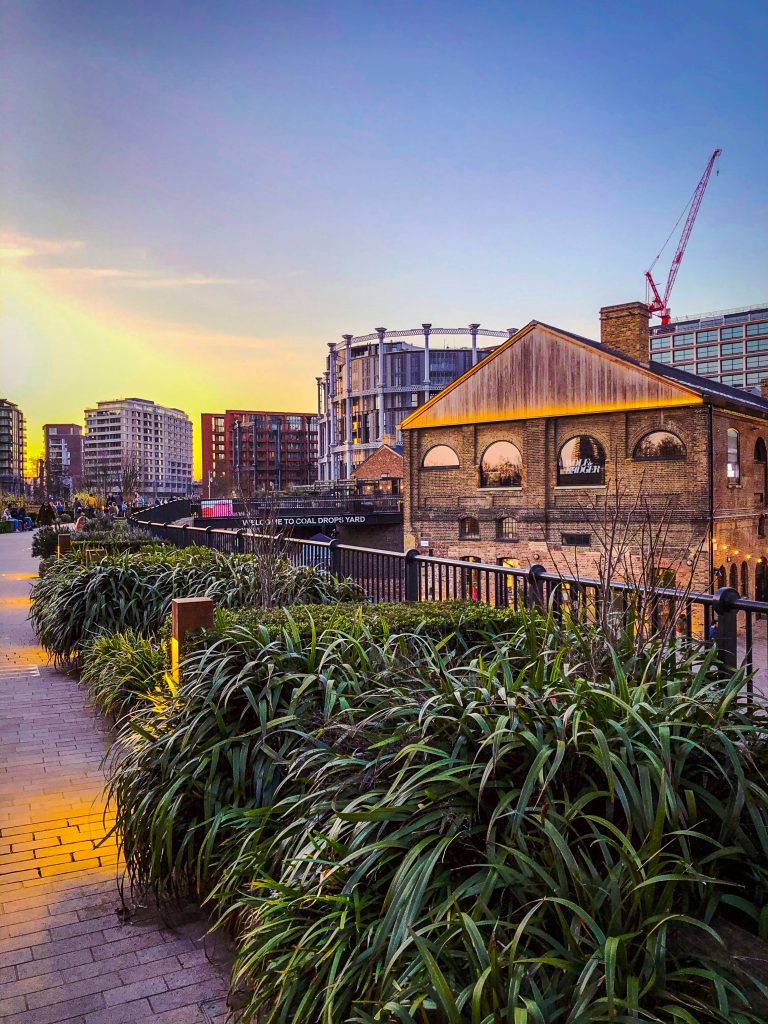
King’s Cross, London, England. Image credit: Aude Vuilliomenet
This changed upon moving to London to pursue her internship in the field of vertical farming, at Vertical Future. Living in a metropolis, where you mostly can’t see the produce growing in the fields, pushed Aude to start questioning the system of a city: “Where does our food come from? How is it delivered? How can so many people travel to the city?”
“The challenges often associated with cities resonated with my quest for supporting the well-being of people and nature.”
“I love London. Otherwise, I think I would not be here,” adds Aude. “In a sense, it’s quite green. You have a lot of parks, and it’s very multicultural. You have a lot of people coming from different backgrounds and different cultures, and you have this kind of bouncing of ideas.” Needless to say, “London definitely sparked [her] interest in urbanism.” She “wanted to know more about what a city is, how we manage cities, and so on.”
Lessons Learnt
Coming from an interdisciplinary background, and with much experience in the field, Aude states these essential skills:
Collaboration
As part of her work, she often communicates with environment professionals as well as ecologists, who “sometimes use the same words but without wanting to say the same thing,” Aude tells us. So naturally, the importance of listening to others, and “questioning, if you say this, do you mean the same thing as me?” is one of the skills.
Tech-Savvy Persona
And regarding smart cities and vertical farming, to Aude, having the right (software) engineering skills is definitely indispensable.
“The use of artificial intelligence in the urban fabric is growing fast. Applications of AI technology help with transport systems, waste, and water management systems, infrastructure services, and many more, regrouped under the umbrella of “Urban AI”. To help cities toward more sustainable living, it is crucial to learn the engineering skills to build ethical and responsible AI, but also to optimise the hardware supporting the deployment of machine learning,” remarks Aude.
Improving the Environment
“If you want to fix the health crisis and people’s well-being, you first need to fix the environment.”
It was a piece of advice given to Aude by her then professor at the Laboratory of Exercise and Health at ETH Zürich, Dr. Katrien De Bock. It was while working with her on the lab analysis to help people get healthier without medication, that the professor gave Aude a lesson which stuck with her ever since: realising “I don’t need to change people, I need to change the environment so they in turn will be changed.” It’s about tackling the problems within your environment, and not about tackling the problems with people themselves.
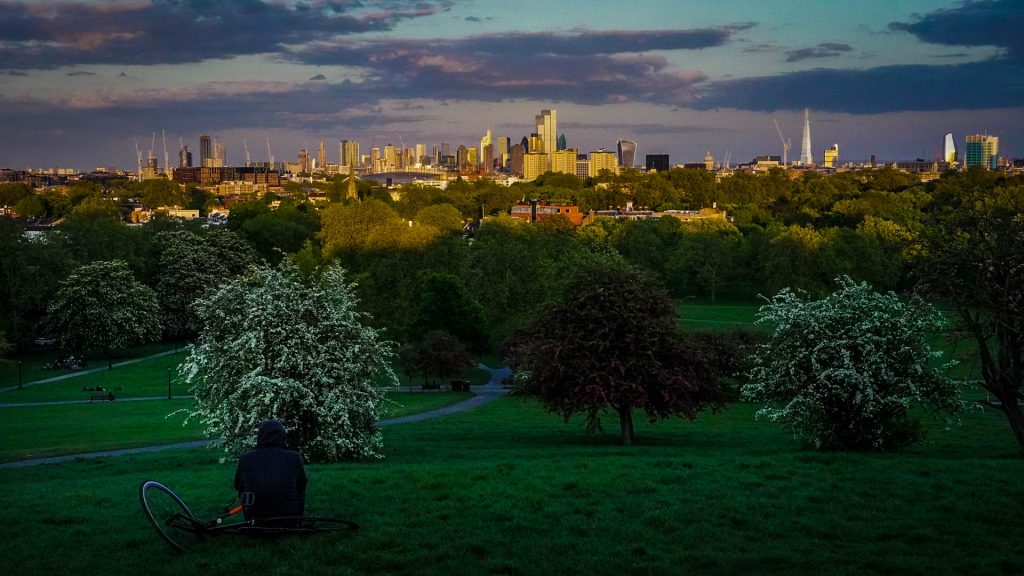
What the Future Holds
“There is an increased awareness of the benefits of nature-based solutions and the need of biodiverse ecosystems to support urban activities and human health and wellbeing.”
Solutions being a part of the blue-green infrastructure, such as green roofs, or sustainable drainage systems.
So thinks Aude, further adding that what is also very exciting is the “advancement of embedded machine learning,” in the sense of what microcontrollers can do, and how “machine learning can give us quite a big amount of data and understanding of how cities function.”
It’s the possibilities of evolving machine learning that makes Aude most excited about the future. Unlike in the past, today the “sensors are cheaper, and they became very tiny,” with the ability of real-time tracking. “If you had a big rainfall or a fire system in the city, you could alert the City directly,” explains Aude. To this CityChanger, technology represents a helping tool, because it could assist with “managing green spaces, understanding the biodiversity of green spaces and actions to improve it, valuing the services that green and blue infrastructure is giving to citizens.”
Right now, Aude perceives managing greenery the biggest challenge for cities. For example, there is a lot of excitement about planting trees and greening cities, but there is little long-term planning in place to manage the newly greened areas. “And then your tree is dead, and what you wanted to achieve is not achieved,” puts Aude bluntly.
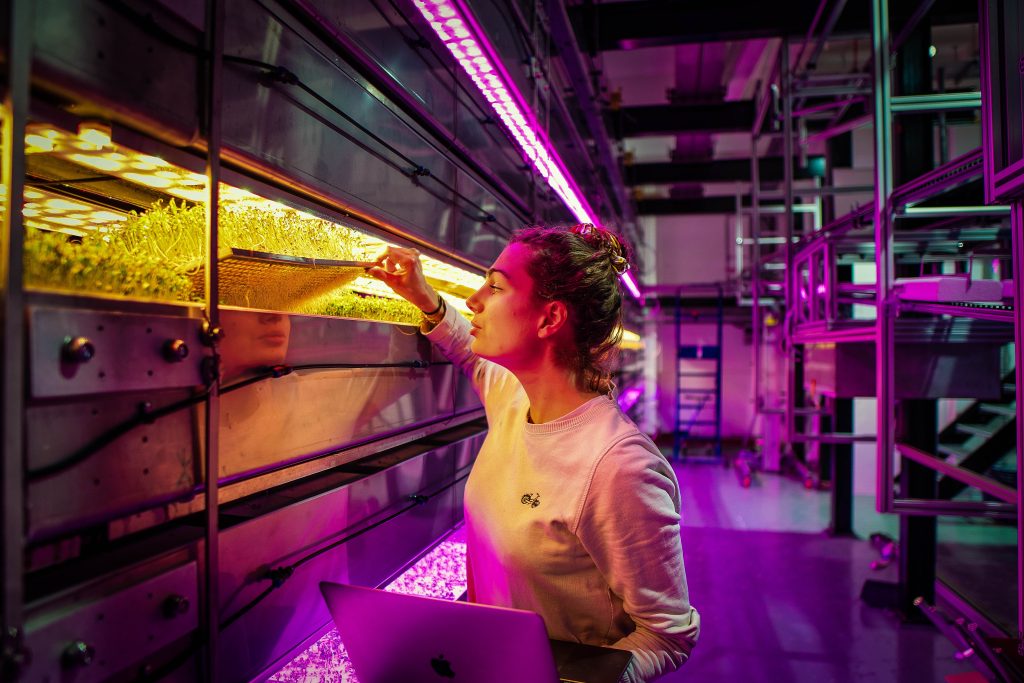
As for her own future, Aude sees herself working with ecology practitioners or urban planners, helping them integrate technology to understand how to better manage their cities.
“I definitely see myself as a technical person, as an engineer, rather than a policymaker.”
In fact, right now, in the scope of her PhD studies, Aude is researching “how we can integrate the Internet of Things (IoT) into urban green spaces to allow for better management of urban gardens and assist urban ecologists in monitoring the biodiversity of these spaces.”
Whether mediating between academia and industry or becoming an entrepreneur to act on her dream, to Aude one thing is for sure: she sees a role for herself in facilitating tech adaptations of nature engagement. Wherever the path may take her, she will no doubt make a great impact in the field.

